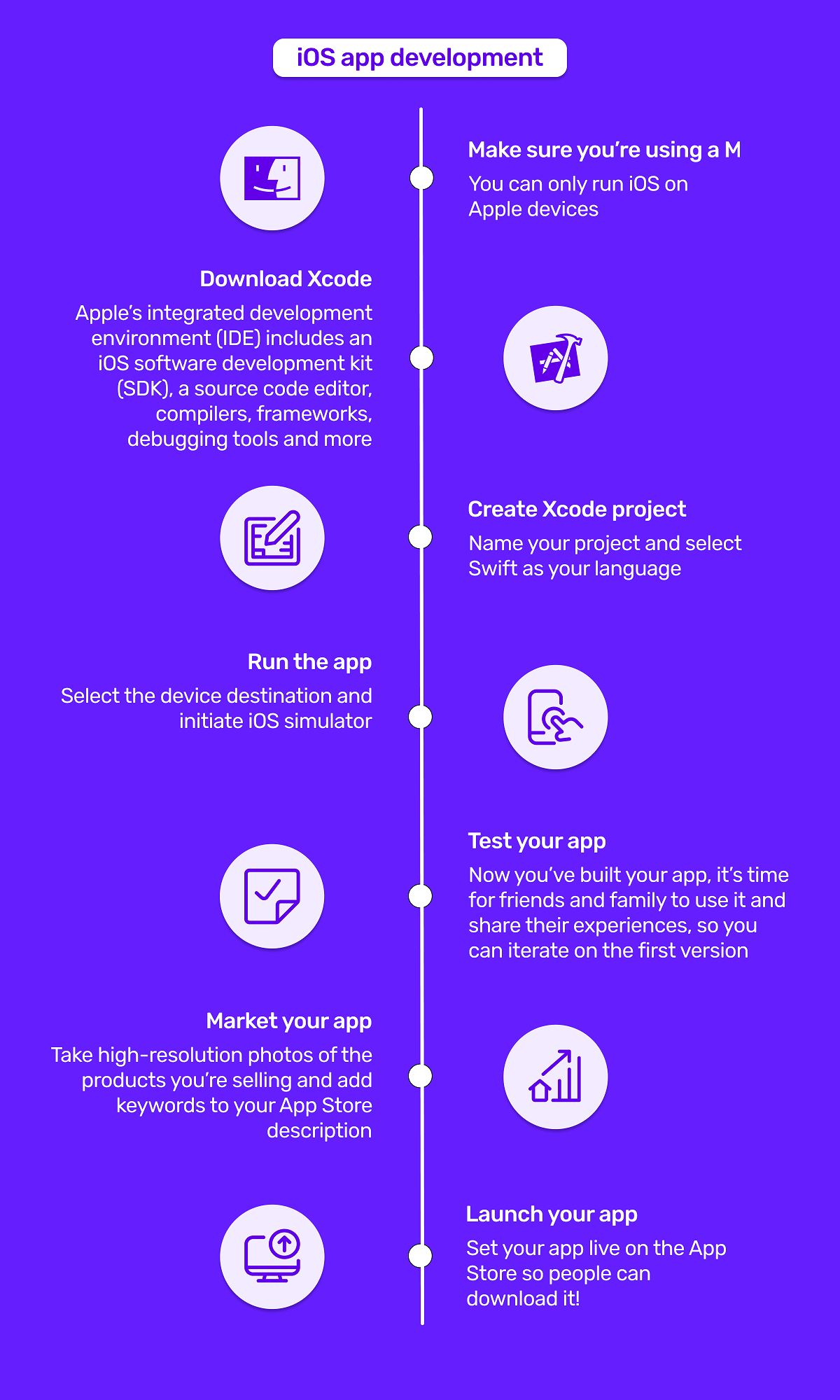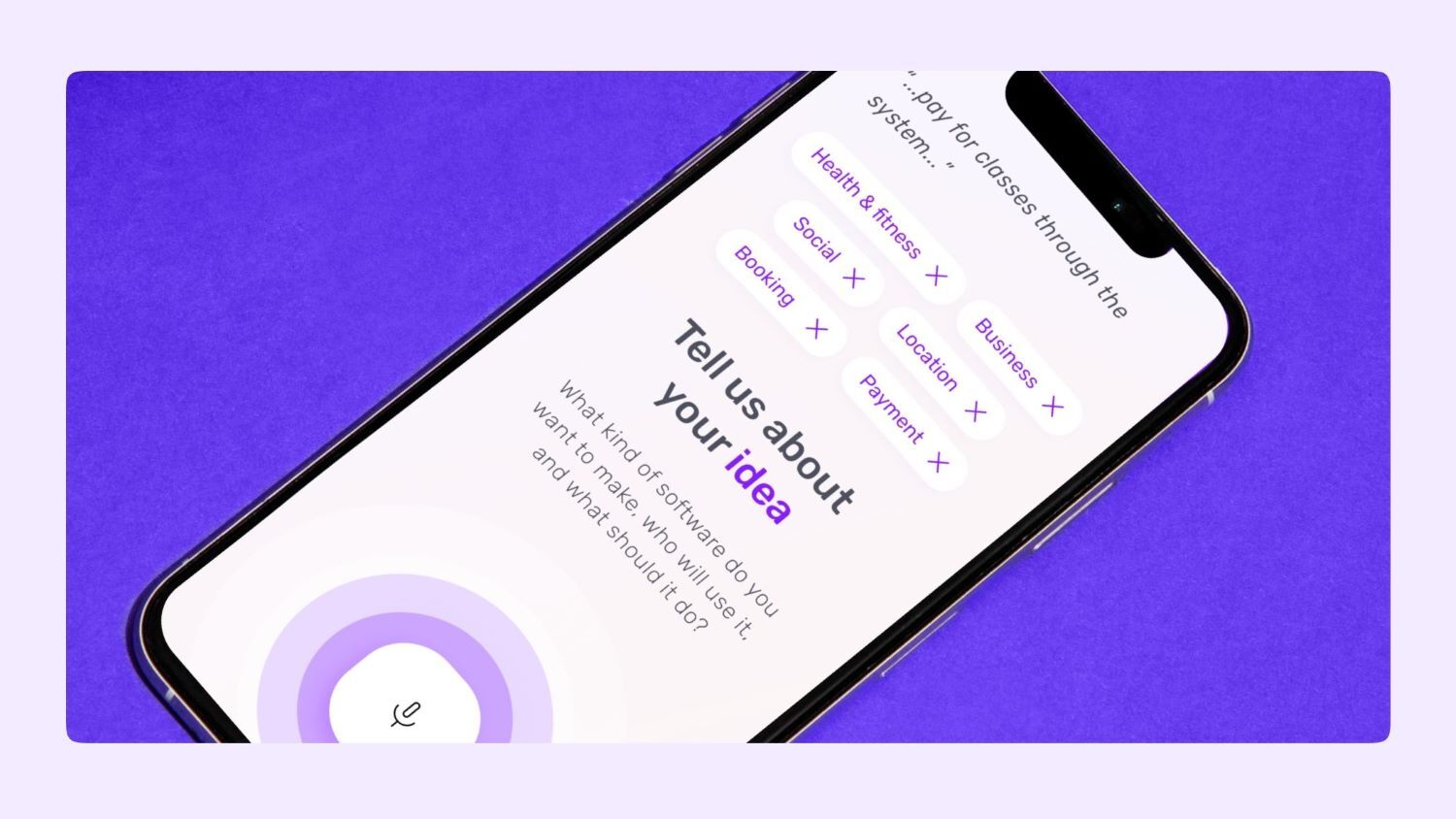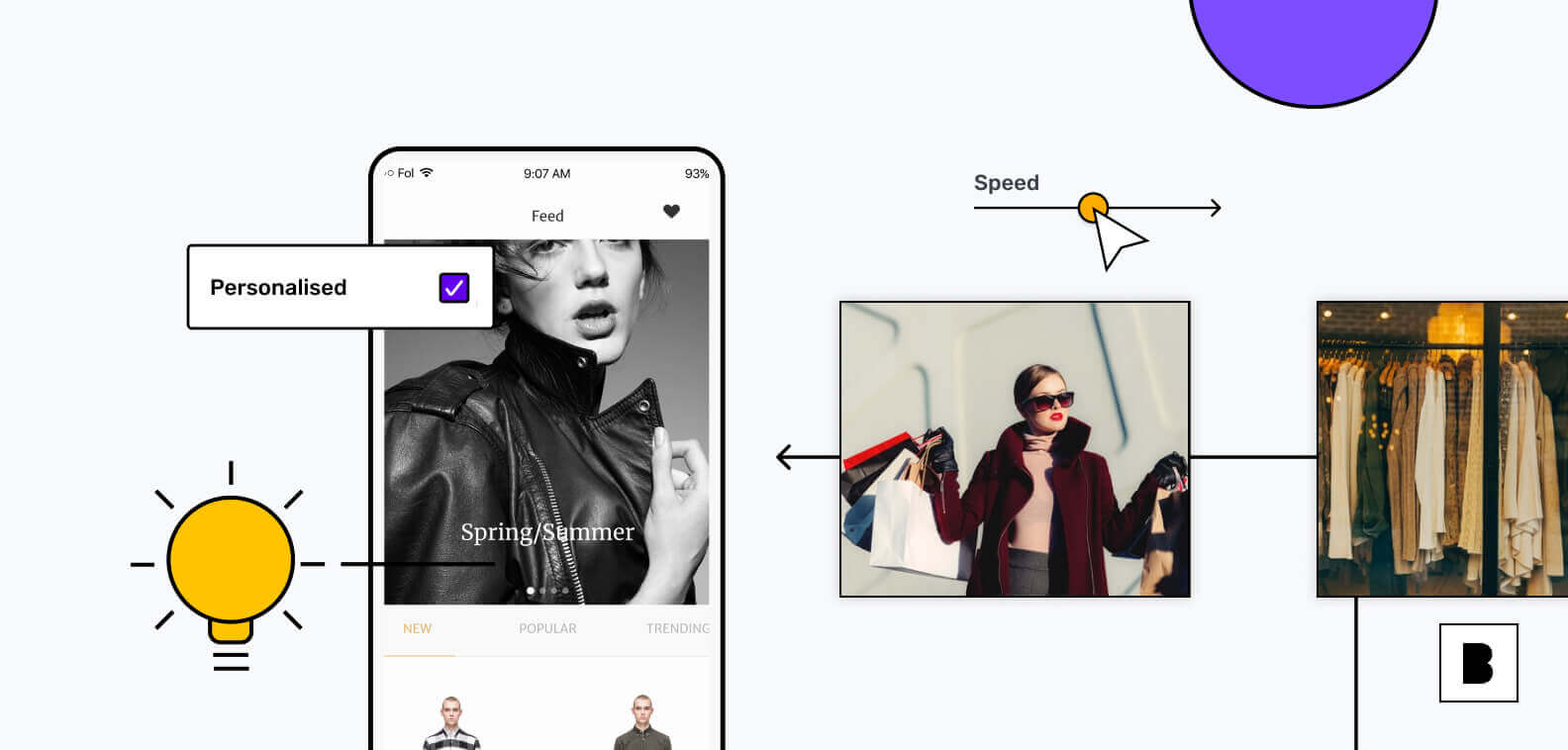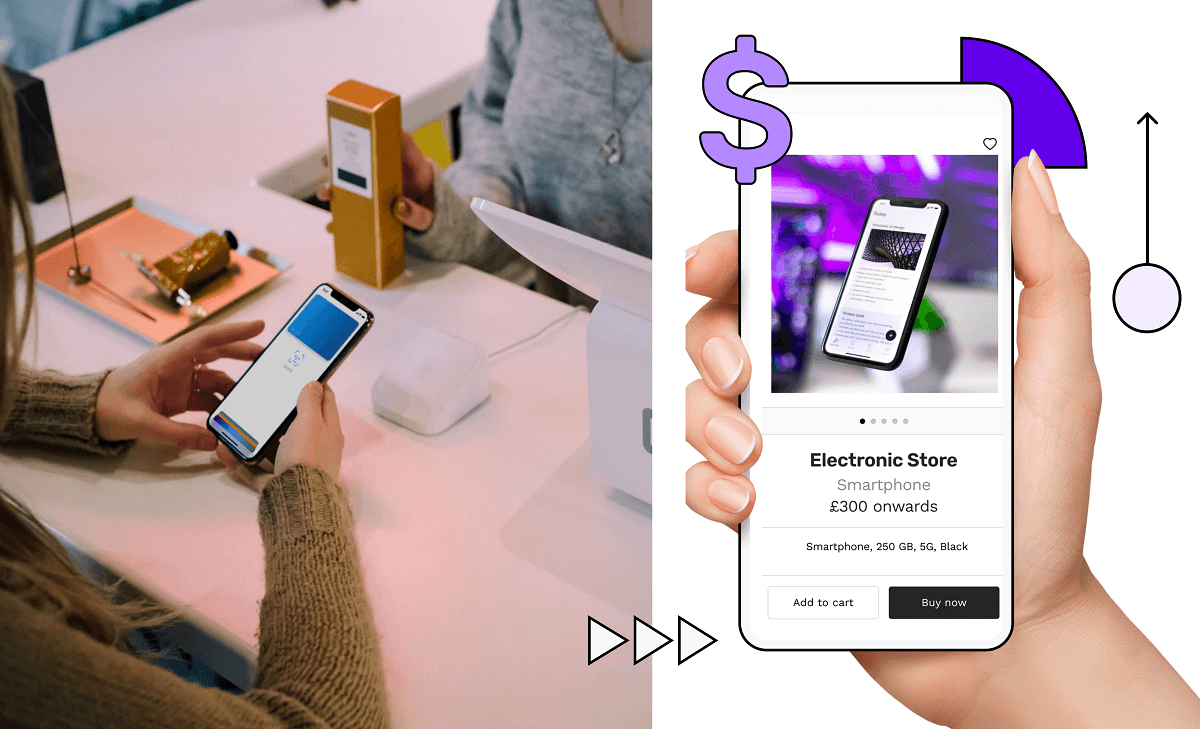That one way or another, you have to learn Apple-specific programming languages to create an app. Whether that be through teaching yourself or enrolling in a course.
But that’s not the case.
Low-code/no-code platforms have opened up a world of possibilities for non-technical people. And now, anyone can develop iOS apps.
In this blog, we explore the pros and cons of both app development routes. Which one you take will depend on your coding skills, plus the time and money you’re willing to dedicate to your project.
Keep scrolling or use the menu below to flick through 👇
What is iOS app development?
iOS app development is the process of developing apps for iPhone. This is achieved by writing software in either Swift or Objective-C, which are different iOS programming languages. So the resulting app can be downloaded by iOS users, it must be published to the App Store.
How can you learn iOS app development?
You have several options for learning iOS app development.
The cheaper option is to teach yourself using online resources. You’ll find plenty on platforms like YouTube, Reddit and Quora. But if you don’t structure this process, your learning curve will be long, delaying the app development process.
The other main option is to enroll in an iOS app development course. Apple has educational materials for all levels of developers, while you can also find tutorials from other online course providers. You’ll have the option of learning how to code for different versions of iOS in your chosen programming language.
Although paid courses help structure your learning and costs are fairly low, the best option is to supplement them with free resources. This way, you’ll be able to keep your overheads down.
What language should you learn for iOS app development?
As we mentioned above, Objective-C and Swift are the two main programming languages for iOS app development.
Swift is far newer than Objective-C, providing a user-friendly environment while operating on an open-source model. Objective-C, on the other hand, is the tried-and-tested option, guaranteeing stability, even if there is a steeper learning curve.
Question is, which one is best for you to learn?
Review the pros and cons of each option below to inform your decision 👇
Swift
Apple created Swift in 2014 with the aim of making it easier to create powerful mobile applications for their ecosystem.
And they succeeded.
Swift now allows mobile app developers to create outstanding user experiences, all in a more readable, less cluttered environment.
Here are the main pros and cons of Swift 👇
Pros
- Open source modelallows you to access support from a community of developers and resolve issues fast
- Safety-first approachmeans Swift is free from many common bugs
- Syntax is easy to read and understandby comparison to Objective-C
- Type lines of code and see results immediatelywith Playground feature
Cons
- The language is young, resulting in regular updates that mean you have to overhaul sections of code; if you don’t perform this maintenance, your app may stop working
Objective-C
Objective-C is a much older programming language, originally created in the 1980s, to improve code quality and performance.
As the code is mature, developers avoid regular updates and new releases, meaning existing code doesn’t need to be rewritten.
That said, Swift is now very much Apple's primary language and Objective-C could be discontinued in the near future.
Here are its pros and cons in full 👇
Pros
- Code is stable and reliablebecause of it’s more established and has been tested by tons of developers
- Simpler to connect with private APIsas it’s more stable than Swift, meaning custom solutions are easier to create
- Compatible with C++ languagewhich Swift can’t offer, meaning it’s easier to integrate products with C-language code
Cons
- Harder to learnas syntax differs from other programming languages
- Limited talent poolmeans you may struggle to find Objective-C-savvy developers as the industry focuses more on Swift
Swift vs Objective-C: Which should you learn?
Though Objective-C has its advantages, you should learn Swift as a priority.
As the code becomes more stable over time, you’ll be able to reap the same benefits as you would with Objective-C, all without worrying about it being canned.
What’s more, Swift is now the clear winner for developing iOS apps, whereas Objective-C is increasingly being used to maintain existing products.
How should you start iOS app development?
There’s an 7-step process for starting iOS app development:

Redeeming the iOS app development cheat code
So, we’ve spoken a lot about actions you can take yourself.
And there’s absolutely nothing wrong with pursuing this path. In fact, it makes total sense if you have a technical background and know how to code.
But if you don’t, then you’re in a pickle.
Because you don’t have time to learn a new skill set; especially when you need your app up and running to start making money.
Sure, you could use freelance app development services to build this from scratch. But costs and timelines will spiral as you make changes and developers focus on other projects.
So what’s the solution? An app builder of course. That’s because they can help you bypass much of the mobile app development process.
There are three different varieties you should consider👇
Low-code app builders
Low-code platforms help developers speed up the development process by providing visual editors and reusable actions, all in a user-friendly, drag-and-drop interface.
This type of app builder allows you to create sophisticated and highly customisable apps, but they’re aimed at technical audiences with prior knowledge of coding, not beginners.
No-code app builders
No-code platforms enable anyone to build an app, even people with zero tech knowledge.
Similar to their low-code counterparts, no-code app builders also use drag-and-drop interfaces, making it easy for users to select features they want.
That said, these features are often limited. And, as a result, the apps you can build with them are simple and difficult to scale.
Low-code/no-code app builders
Low-code/no-code app builders combine the benefits of both the above in one platform, meaning you have the flexibility to make any app idea reality, regardless of complexity. And you can also do it on a timeline that suits you.
Studio Store from Builder.ai, for example, provides pre-packaged app and website templates, ranging from ecommerce to restaurant to grocery and many more.
With an iOS template from Studio Store, you don’t need to worry about building all the fundamentals from scratch, like login pages, payment screens and product listings. They all come as standard.
Plus, as your business grows, you can add more features to satisfy your customers. But you’ll never pay for anything you don’t ask for.
Unlike a project you manage or one handed over by a freelancer, we also take managing your website infrastructure out of your hands with our aftercare program. This means you don’t ever need to worry about bug fixes or software updates.
If that sounds good, check out Studio Store now 👈
Conclusion
If you’re a developer building an iOS app, the world is your oyster. But that’s not to say it’s off limits for everyone else.
The power of low-code/no-code is opening up opportunities for anyone to dip their toes into the mobile app development game.
So, what will you build?
FAQs
Still looking for more information about iOS app development? Then check out our FAQs below 👇
What is the cost of iOS app development?
If you have coding skills and you’re willing to learn new programming languages using free resources, you can develop an iOS app without spending a dime. If you choose Builder to develop your iOS app for you, starter plans begin at £75 per month and last for 24 months.
What is the best platform for iOS app development?
The best platform for iOS app development is Xcode as it’s specifically designed for iOS (and Mac) development. Capterra users say it’s “well designed and easy to use” while it has “very good code completion” and a great community, plus proper documentation.
What are the main iOS app development requirements?
At the most basic level, you need a Mac and an up-to-date version of Xcode to develop an iOS app. You should use the Swift programming language rather than Objective-C, which you’ll have to learn if you’re not already familiar with it.
Ananth Ramanathan runs Studio Store business at Builder.ai with a mission of digitising a 1M+ micro SMEs in the next 5 years. He oversees the commercial, product, and customer success functions to rapidly scale Studio Store globally. Ananth's an experienced tech business operator, a failed entrepreneur, and an active angel investor.













 Facebook
Facebook X
X LinkedIn
LinkedIn YouTube
YouTube Instagram
Instagram RSS
RSS


